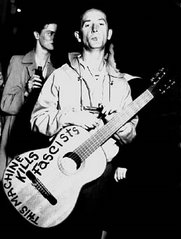
Today, I read this article and it reminded me of an issue I think I may have blogged about in the past, but this occasion warrants a re-mentioning.
The title of this post was a statement made by Peter Hain, the British minister of Northern Ireland. The comment was made in reference to the compromise made by leaders of the Sinn Fein party and Protestant party in Ireland to accept terms that would allow Ireland to reclaim the precesses of many of the country's internal affairs from the custodial control of the British.
Local governance had been assumed by Britain because of historical conflict that made the two parties unable to work together. Sinn Fein's not-so-discrete connections with the IRA and its murderous terrorist actions and the retalitation of Protestant factions are a result of conflicts over religion and politics that started to manifest in bloodshed as early as the 1920s.
But, today compromise has been reached and we have come far from the violence that had long plagued Ireland. But, the issue of terrorism in Ireland has been an issue to which I have pointed as a possible model for the Middle East Peace process. The entrenched ideology that led to blood shed in Ireland is similar to the religious ideology that catalyzes terrorism in the Middle East.
When you look at the history of Irish terrorism you see that as long as diplomatic resources were closed to groups such as the IRA violence was their primary bull-horn, this occurred for most of the twentieth century, then in the late 90s the Sinn Fein party, who had ties to the IRA, established a voice the in Irish government. While protestant hegemony remained violence decreased. Suddenly, the method of violence as public outcry was less necessary and diplomacy was used. Hostility, some physical and some symbolic, has remained but this is a giant step forward because of the willingness for these two once bitter enemies to accept responsibility for shaping the future and who have laid down their figurative swords in order to accept control of their own fate, together. My question: is the radiclaism of the Middle East more malignant than that of Ireland's past, and if not what might be the outcome of relinquishing some of the same diplomatic resources to all of the conflicting ideologies of the Middle East? At least in the venue of diplomacy radicalism can be moderated, and perhaps each interest can be satisfactorily heard on a national and international stage.
Whatever, just my opinion, and you know what they say about opinions.........
Lastly, I want to say real quick that among a number of movies that will never come to a theater near you that I want to see the 2006 Palme d'Or winner, Ken Loach's The Wind that Shakes the Barley, the film takes place in the 1920s at the outset of the conflict in Ireland, that is why I mention it here.



2 comments:
Cillian Murphy is creepy...but has a cool name.
I just saw this trailer on APPLE...i had never heard of it.
I believe that the solutions lie in dealing with the causes, not the symptoms. Why is it that the highly sophisticated military forces (not to mention numerically superior) of the US cannot defeat the smaller opposition? Possibly because we are, and always have, gone about this "enforcement" terribly misguided. The enforcement acts as a spur, goading on the affected countries to adapt a determination to resist. Out enforcement technique deals only with the violence, not the social, economic, and strong beliefs that are actually the cause of the violence. The enforcement of our values only attacks the symptoms, and exacerbates the symptoms. The power approach has seldom worked against conflict based on strongly held values.
Post a Comment